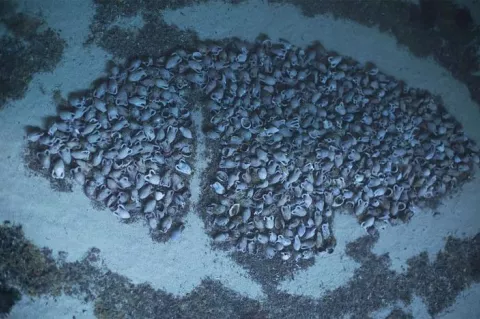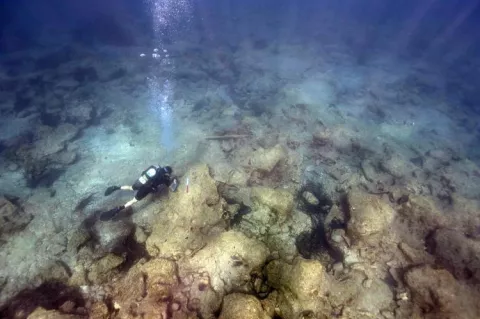Massive Roman shipwreck discovered in Mediterranean
Greek archaeologists have discovered the remains of a massive Roman vessel believed to be the largest classical shipwreck found in the eastern Mediterranean. Believed to have sunk some 2,000 years ago, the 35-metre vessel was discovered at a depth of around 60m during a survey off Kefalonia, one of the Ionian islands off Greece’s west coast. The site is situated 1.5 miles from the entrance to the harbour of Fiscardo, the island's only village to not be destroyed during World War II.





